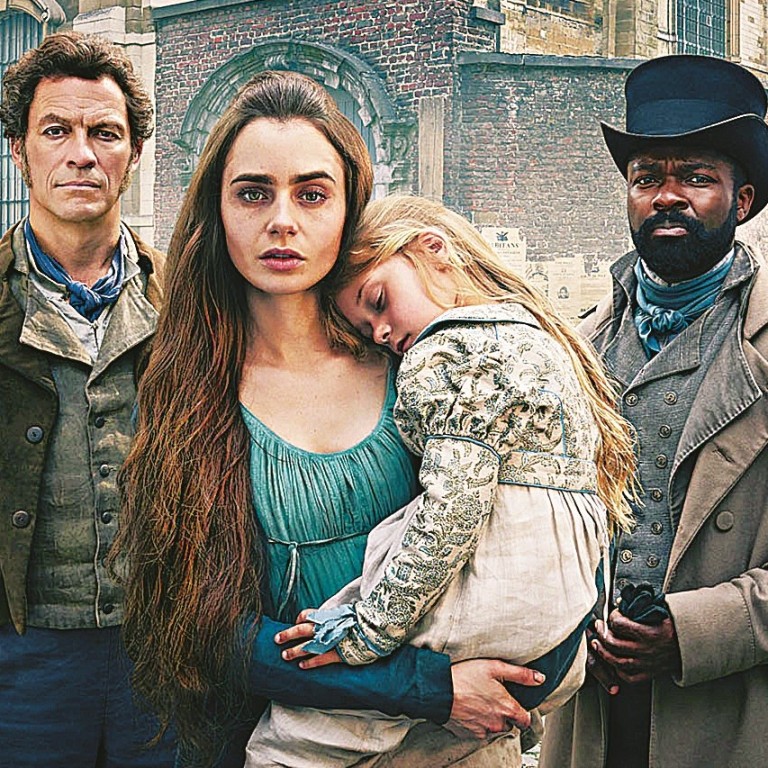
Les Miserables to get modern retelling in BBC series starring Dominic West, Lily Collins and David Oyelowo
- Even though Victor Hugo’s novel has been adapted for radio and film more times than any other, it is ripe for another revisit, says star Oyelowo
- The historical drama will be brought up to date in Andrew Davies’ adaptation
If you were adapting a story that has already been turned into a colossus of a stage musical and a triple-Oscar-winning Hollywood film, you might be expected to be slightly overawed by the task.
The actors and producers of the latest iteration of Les Miserables – a six-part BBC take on Victor Hugo’s 1862 novel – are suitably diplomatic about the stage show seen by 70 million people in 51 countries, giving verdicts that range from “perfectly good” to “brilliant”.
At long last, House of Cards folds – is anyone still watching?
But not Andrew Davies. The screenwriter behind the original House of Cards, the Pride and Prejudice adaptation that saw a wet-shirted Colin Firth emerging from a lake and an equally sexed-up War and Peace went to see the musical in London’s West End while preparing his own scripts.
“And I thought it was appalling. I hated it,” says the 82-year-old, with a large glass of red wine in hand, ahead of the show’s global launch at the British Academy of Film and Television Arts (Bafta) in London.
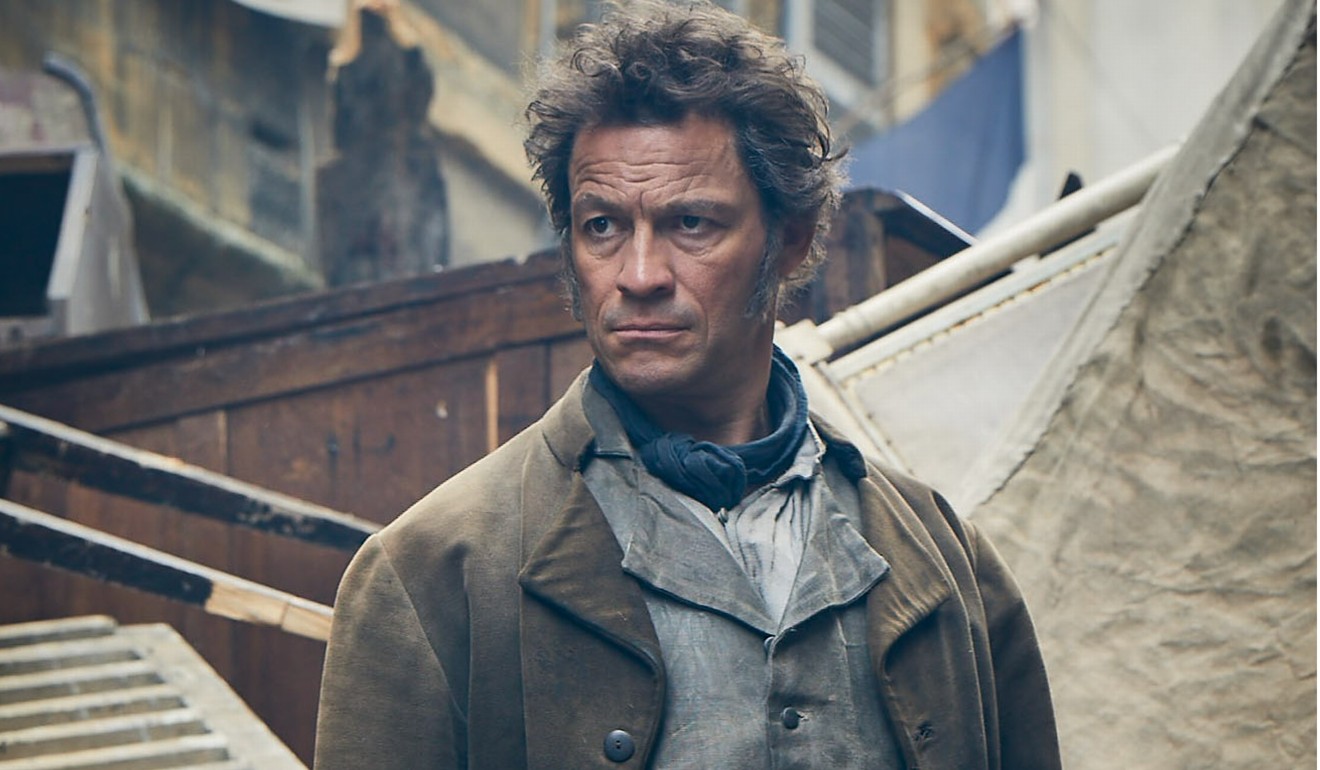
“I did see it rather late on, probably with a second- or third-rate cast. But, even so, I thought the lyrics were contemptible doggerel. There were one or two good tunes, but nothing that you couldn’t do without. Basically a lot of it was like a school concert with people standing in a row and singing. So part of my motivation then became to rescue Les Miserables from the musical.”
The new dramatisation is without songs, but boasts an all-star cast, including Dominic West as Jean Valjean, David Oyelowo as Javert, Lily Collins as Fantine and Adeel Akhtar and Olivia Colman as Monsieur and Madame Thenardier. Oyelowo, now more regularly seen on the big screen, including as Martin Luther King in Selma, says he was drawn back to TV by Davies’ script, which was “literally one of the best things I have ever read”.
“I don’t care who you are, I do not think there has been an adaptation as good as this,” he says.
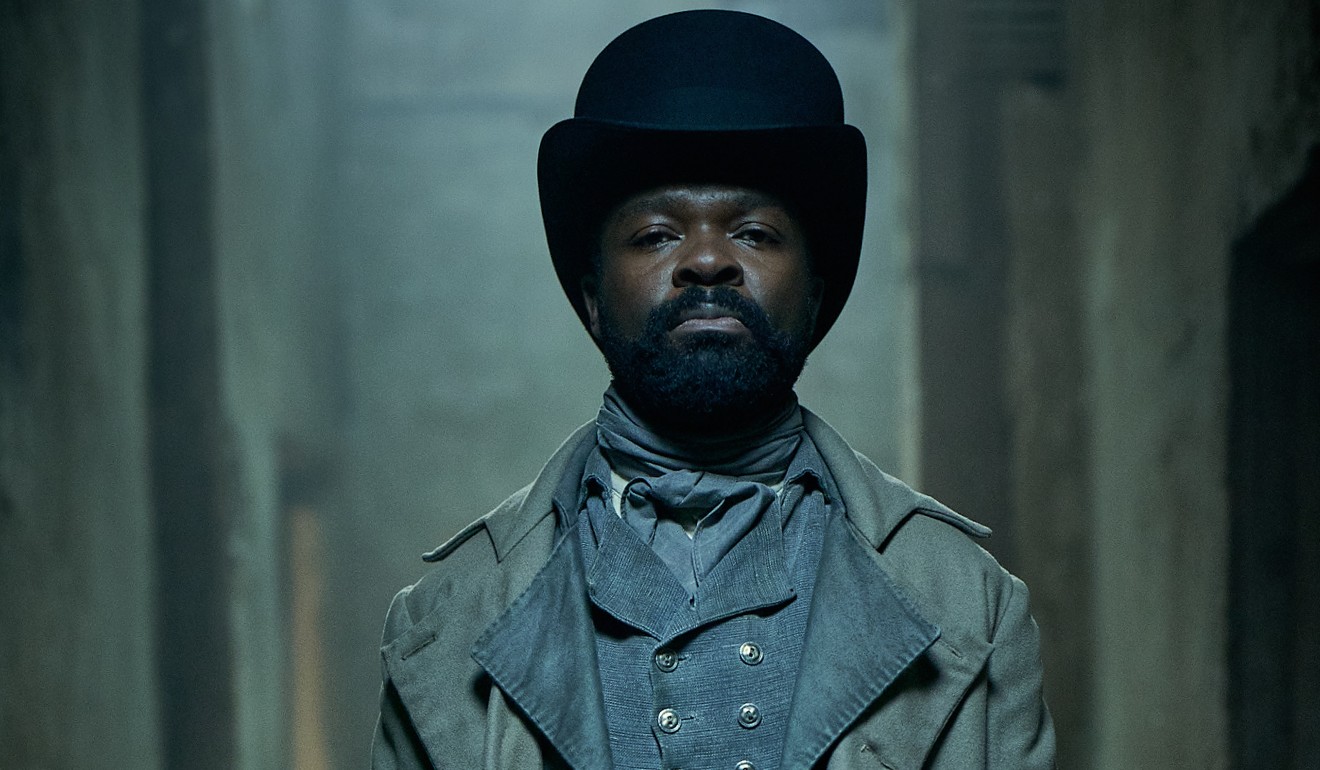
“There are certain stories – Shakespeare, Dickens, Austen and I would include Les Miserables the novel – that so speak to humanity. Revolution, religion, class, war, sex, love, hatred, malevolence – these are all things that mean every generation wants to tell that story [anew].”
Collins concurs. “You can smell, taste, see and hear the world,” she says, adding that even the snow and driving rain were real – as well as her bruises.
“That was my fault,” says a sheepish Oyelowo. In a scene in which a raging Javert pushes Fantine away from him, Oyelowo deployed slightly too much force, and “she literally went flying” across the cobbled stones of Limburg, Belgium. “She weighs about as much as a teaspoon,” he says in his defence. “I felt awful – she had the most ginormous bruise on her hip, but she’s such a brilliant actress, she just kept going.”
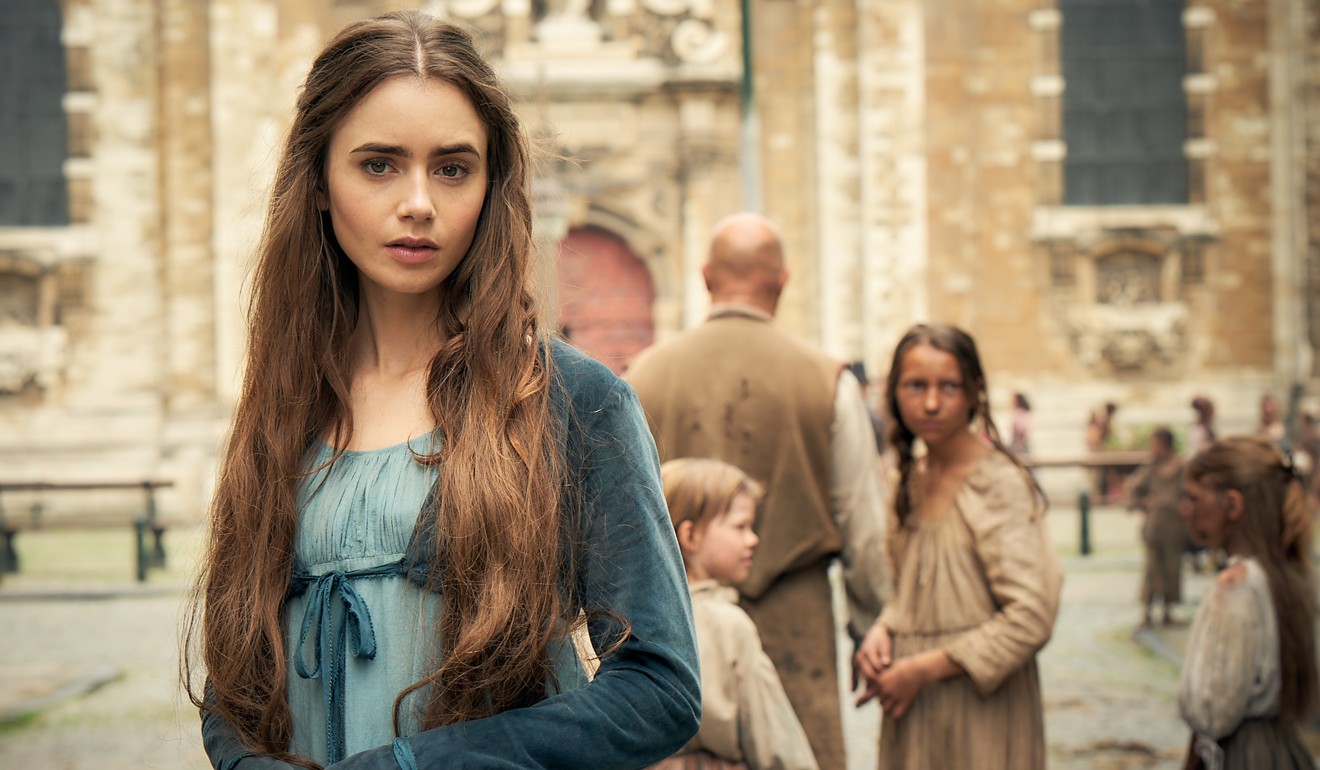
After publication, Victor Hugo wrote that his story was intended to be read “in every place where man is ignorant and despairing, in every place where woman is sold for bread, wherever the child suffers for lack of the book which should instruct him and of the hearth which should warm him”.
And Davies insists the 1,500-page book – adapted for radio and film more times than any other novel – is ripe for a revisit.
“Walking along to get to BAFTA,” he says, “you’re passing people who are begging in the street, sitting in the rain, and we’re in our Chanel and our Gucci, you know, wondering how to solve all these kind of problems. Society is very much divided up into haves and have-nots now, and it was then. The Nazis seem to be coming back all over Europe. Whether revolution is a good way to solve all that … I’m not sure.”
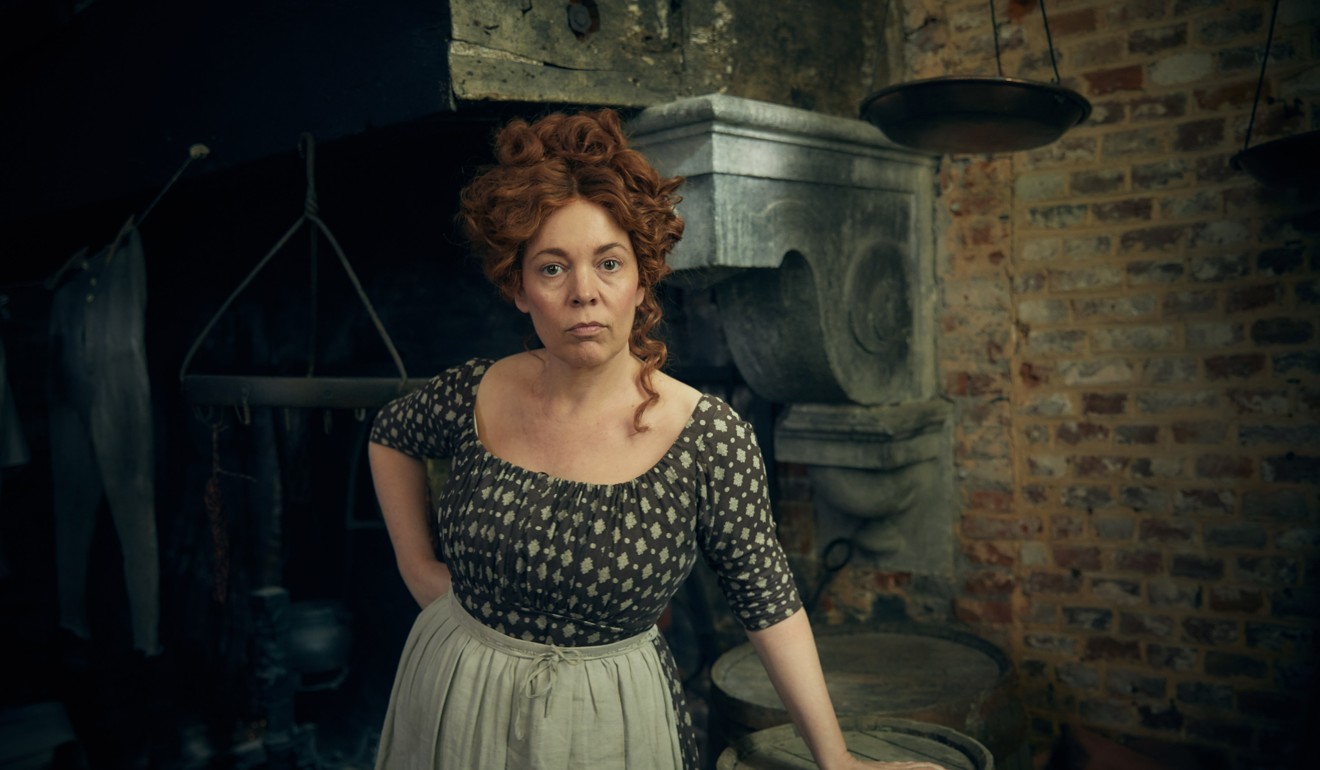
We speak as the “gilet jaunes” riots take hold across France. Oyelowo says: “We are at a time of incredible political unrest in the world. The fact that in the trailer, it said Paris is a tinder box – I mean, you want to talk about a piece that is potent for the time, let alone the discrepancies between different classes of people and police brutality. It just shows, we don’t really learn our lesson.”
The lavish series is also given a freshness by its colour-blind casting, allowing for Adeel Akhtar and Erin Kellyman to receive their first roles in a costume drama.
Kellyman, who plays Eponine and is mixed-race, tells me: “I just assumed I would never do period drama. It just never seemed like it was an option for me.”
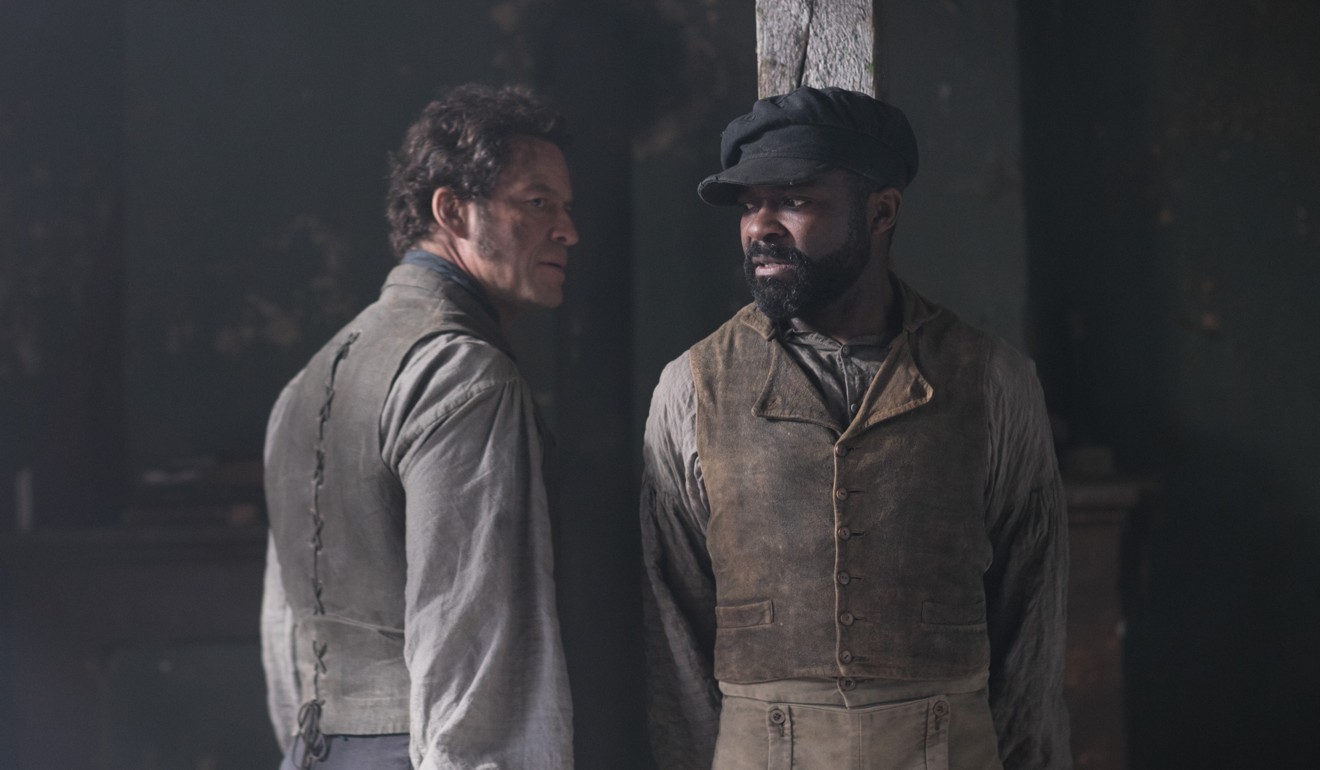
There is also an undercurrent of homoerotic “unconscious attraction” fuelling Javert’s obsessive pursuit of Valjean – according to Davies, at least, who says he felt the character “may actually be in love with him”.
Lily James nails it in Pride and Prejudice update
And if all of that is not enough for viewers to put the strains of I Dreamed a Dream and One Day More out of their heads, the screenwriter offers a grudging solution. He says, through gritted teeth: “Well, I think they can hum the tunes in their head or out loud if they find that helps.”
Les Miserables premieres on December 31 on BBC First (available on Now TV and myTV SUPER).

